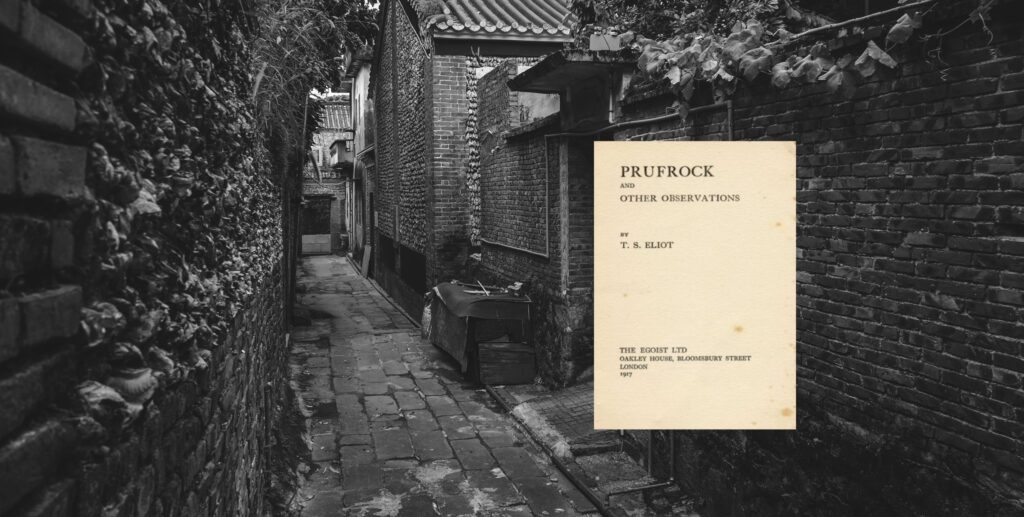Photo by 五玄土 ORIENTO on Unsplash
J. Alfred Prufrock’s challenges are the same challenges some young aristocrat’s today experience. In the name of not judging before you walk in another person’s shoes, hear me out.
T.S. Eliot wrote the poem “The Love Song of J. Alfred Prufrock” in the early 1900s. It examines the trials of a young aristocrat and these challenges remain for some young “aristocrats” even today.
Eliot’s choice to include some early twentieth century realities in his work serve to establish the poem in its time and J. Alfred Prufrock in his circumstances. A reader in any time could use these clues to understand the experiences that motivate his behavior and viewpoint.
I can see Prufrock and the character Eliot imagines him talking to walking down a dank, shadowy city street in turn-of-the-century London. Knowing Eliot lived in London and was such of an Anglophile, I imagine the setting that’s become so common, now, as to be cliché.
“Let us go, through certain half-deserted streets,
The muttering retreats
Of restless nights in one-night cheap hotels
And sawdust restaurants with oyster-shells:”
This portrays a street where a place a rebellious young person of the time would’ve chosen to frequent.
Prufrock seems to be a man of his time, bored with his life since he’s overeducated and scholarly, yet the sensibilities of the time would not allow upper class people to work or have goals. The aristocratic people of the time would discuss loftier things as Eliot references in “In the room the women come and go. Talking of Michelangelo” to demonstrate they erudite ways.
Prufrock and his situation remind me of some of the young people of the middle eastern countries, educated and under stimulated in the same way. They are forward thinking, progressive youth, given plenty of education, but nothing to do with it, many, some of the women, not even allowed to do anything with it. Prufrock is a man of Eliot’s time, who had education and money but “a job” or “goals” were beneath him.
When the human mind is educated it needs something to work on or it gets bored “Like a patient etherised upon a table;” and the upper class of that time as well as the upper class Arabs of today have nothing to work on so they occupy they’re mind with trivialities.
Eliot, and the other modernist authors, may have felt drawn to the literature of the antiquities and chosen use it to lured to the timelessness of all things. By pointing out the circumstances of the character of J. Alfred Prufrock, Eliot is able to bring his reader to the immutability of the lessons available to learn.
You can read the whole poem on Gutenberg.org. It’s not to long, but you’ll need some time to process it.
Tell me about you trials? Tell me about a time you found yourself judging, before walking in that persons shoes? What do you do to remind yourself not to judge too hastily?
